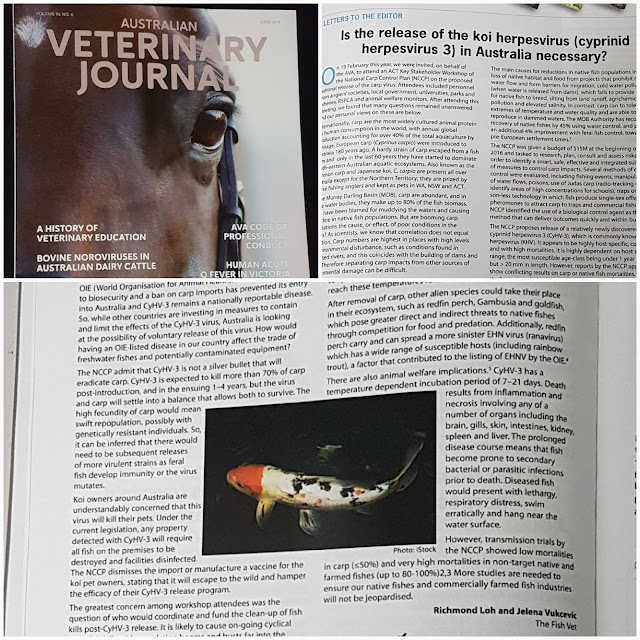VICTORIA is leading a call for more cash for plans to unleash the carp herpes virus
So..$15 million is put aside for the Carp eradication plan. $4 million for "research" and the rest on . publicity and "education" What a train wreck VICTORIA is leading a call for more cash for plans to unleash the carp herpes virus, amid a shortfall in the National Carp Control Plan’s research budget. Victorian Agriculture Minister Jaala Pulford has this week written to her federal counterpart David Littleproud, demanding almost $4 million extra be put towards research for the release of the controversial koi herpes virus in Australia’s waterways. It comes as a leading Queensland Government scientist involved in the project, Jonathan Marshall, also called for more research funding — and an extension to the end-of-year deadline for getting the plan ready for the Federal Government’s consideration. “Without more time and more research, an informed decision by the end of this year (on whether or not to use the virus) is just not going to be possible,” Dr Mars


